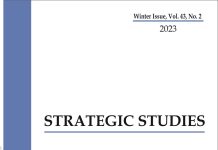The book offers an eyewitness account of jihadi movements in Afghanistan. It is co-authored by Mustafa Hamid, commonly known as Walid al Masri, with Leah Farrall. Hamid was among the first foreigners who came to Afghanistan to fight the Soviets and fled to Iran after the United States’ invasion of Afghanistan where he was placed under house arrest till his release in 2011. Leah Farrall was a counter-terrorism analyst turned academician. Farrall claims that the book is based on “unified narratives” written in the form of a dialogue between the two. In their communication, while they disagree on many issues, both agree that “mutual understanding is important to respecting differences and achieving peace” (p. 18).
Spanning over twelve chapters, the book starts with a list and explanation of important people, widely known and unknown training camps, both in Afghanistan and Pakistan, religious terminology, important locations, militant organisations and major battles fought, making it interesting for a diverse audience. Farrall, by comparing her book with other books written earlier, for example Basil Muhammad’s work, The Arab Supporters in Afghanistan, Abu Musab al Suri’s The Global Call and Aymen al Zawahri’s autobiographical reflections and information of Arab-Afghans, claims that that this book brings a new insight to its readers. Starting with the early history of jihad, The Arabs at War in Afghanistan also details the global Salafi jihad that followed the Soviet withdrawal from Afghanistan. The book identifies key characteristics, legacy, and the history of Arabs and Afghans, and how this legacy in the form of jihadist movements continues to manifest itself in present day conflicts in the Arab world. These include the Salafi-Wahabi jihad emerging from Afghan jihad and the conflicts in which the jihadists subsequently participated in Asia, North Africa and Middle East with the objective to fight the infidel influences.













